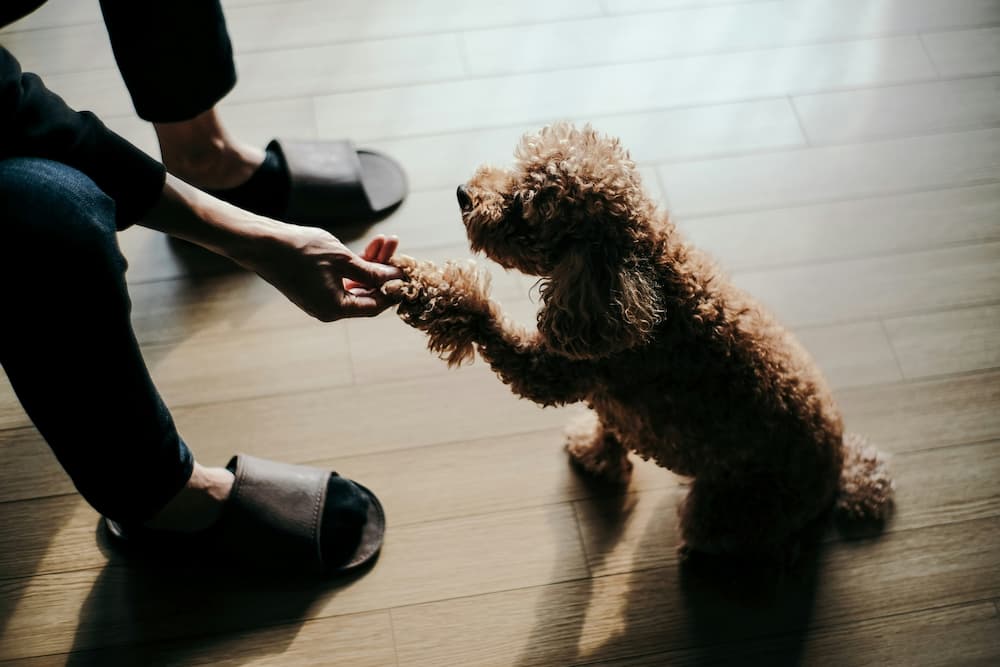Every dog‑loving family has faced that midnight chorus: a puppy barking in the crate. Not only is it stressful for your pup, but it also disrupts sleep and harmony at home. If you’ve found yourself searching for how to get puppy to stop barking in crate, you’re not alone. With the right strategies, consistency, and kindness, you can transform the crate into a safe haven—helping both your puppy and your household enjoy restful nights.

Why Do Puppies Bark in Their Crate?
Puppies vocalize in crates for instinctive reasons. Understanding these unlocks faster solutions:
Separation Anxiety: Puppies are pack animals. Isolation triggers panic barking, especially if crated far from family.
Unmet Needs: Hunger, thirst, or a full bladder/bowel amplify distress. A puppy needing to “go” will bark urgently.
Environmental Stress: Noises, unfamiliar scents, or poor crate placement (e.g., a drafty garage) heighten fear.
Attention-Seeking: If barking previously earned freedom or cuddles, puppies learn to repeat it.
Discomfort: An oversized crate, lumpy bedding, or extreme temperatures can cause physical unease.
Pro Insight: Never use the crate as punishment. This breeds negative associations, making barking worse.
What to Do If Your Dog Is Squinting?
Optimizing the crate involves both comfort and sensory control:
Proper size & visibility – Use dividers: just enough room to stand, turn, and lie down. A wire crate helps your puppy see and feel less isolated.
Cozy bedding & ambient noise – Soft bedding, a ticking clock, or white noise can soothe and mask unsettling sounds.
Strategic Placement – Start near family activity (e.g., bedroom corner). Gradually move to a permanent, low-traffic area after acclimation.
Positive associations – Feed meals inside crate, offer safe chew toys or stuffed Kongs. Gradually raise the value of quiet crate time.

How to Stop Your Puppy from Barking in the Crate
Silence demands patience and consistency. Follow this training sequence:
1.Positive Association Drills:
Toss high-value treats (boiled chicken) near the crate. Let your puppy enter/exit freely.
Feed all meals inside with the door open. Use phrases like “Go to crate!” when they enter.
2.Gradual Confinement:
Shut the door during meals for 1 minute. Extend time by 2–5 minutes daily while staying nearby.
If barking starts, wait for a 3-second pause before opening. Reward quiet before releasing.
3.Absence Practice:
Step out of sight for 5 seconds. Return before barking starts, praise, and release.
Slowly increase absence duration (10 sec → 1 min → 5 min). If barking erupts, reset to a shorter interval.
4.Quiet Command Training:
During calm moments, say “Quiet.” When barking stops, mark with “Yes!” and treat.
Practice during low-stress times (e.g., post-play) before crate sessions.
Critical Rule: Never reward barking with freedom or attention. Wait for silence—even 1 second counts.

How Do I Handle Persistent or Nighttime Barking?
When nighttime barking continues:
Bedtime proximity: Place crate in your bedroom so they hear your presence—comforting without interference.
Consistent night routines: Run, potty, crate, lights out—making patterns clear.
Gentle nighttime interventions: If barking persists: do not yell. Go quietly, check for needs, then return. Avoid play.
Consider professional help: If persistent after a week, with signs of separation anxiety, consult a certified trainer or behaviorist.
Conclusion
How to get your puppy to stop barking in the crate hinges on trust—not force. By understanding the causes, crafting a calming space, reinforcing quiet behavior, and following sensible routines, you can turn the crate into a secure spot—benefiting both your pup and your family’s peace and happiness.
FAQ
Does putting a blanket over a dog crate help with barking?
Yes—when done correctly. Covering 3 sides (leave front open for airflow) reduces visual stimulation, creating a den-like calm. Use breathable fabrics to prevent overheating. Avoid blankets if your puppy chews fabric.
How long should I let my puppy bark in the crate before responding?
For attention-seeking barking: wait 10–15 minutes if needs are met. For distress barking (high-pitched, panicked): check for urgency (potty, illness) immediately. Never let puppies under 4 months “cry it out” longer than 15 minutes—they need reassurance.
How to get puppy to stop barking in crate at night?
Use a nighttime strategy: bedtime crate in your room, calm routine, a brief potty session if needed, and no attention unless necessary. Stick to consistency—the goal is calming, not comfort barking.
Visited 1 times, 1 visit(s) today





